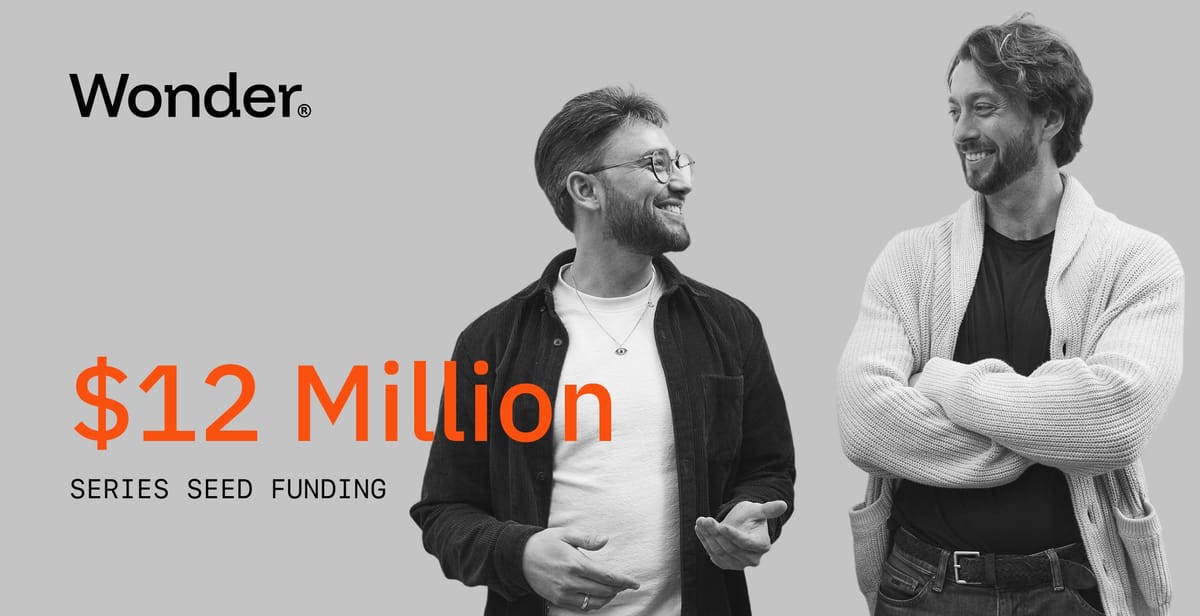
London-based Wonder Studios closed a $12 million seed round led by Atomico to build what it calls an "AI-native entertainment studio." The company is betting it can succeed as a production company rather than just another AI video tool—a distinction that matters more in theory than practice so far.
Key Points:
- Wonder generated revenue within six months through commercial work including a Lewis Capaldi music video produced with Google DeepMind, YouTube, and Universal Music Group
- The company operates a three-pillar model: brand work, IP partnerships with creators, and original content, positioning itself somewhere between an agency and a studio
- Wonder faces well-capitalized competitors including Runway ($536M raised, targeting $300M revenue in 2025) and Synthesia ($2.1B valuation), while Hollywood remains cautious about AI content—Deloitte estimates studios will allocate under 3% of production budgets to generative AI in 2025
The funding includes participation from Adobe Ventures, existing investors LocalGlobe and Blackbird, and entertainment veterans like Erik Huggers (former Vevo CEO) and Stephen Lambert (Studio Lambert owner). Wonder's pre-seed backers included executives from ElevenLabs, Google DeepMind, and OpenAI.
Since launching in April, Wonder's moved quickly into commercial validation. The Lewis Capaldi video showcased AI-generated visuals that would've been impractical to shoot traditionally—tsunamis colliding with buildings, worlds flipping upside down. Wonder also released "Beyond the Loop," an anthology series that's hit 1.5 million views and earned a second season greenlight.
But the "studio model" language masks a familiar question: is Wonder actually different from the dozen other AI creative companies raising money this year, or just better at packaging? The three-pillar approach—commercial work funds original content while building a creator community—sounds like every media startup pitch from 2015, just with "AI-powered" inserted.
Runway raised $308 million in April and is targeting $300 million in annualized revenue this year, giving it resources to both build better models and undercut Wonder on production work. Synthesia closed $180 million in January at a $2.1 billion valuation, focused on enterprise video communications with 60,000 customers. Moonvalley raised $84 million and is positioning itself around "ethically trained" models using licensed content—a hedge against the copyright lawsuits currently hitting the industry.
Disney and Universal have sued AI companies like MiniMax and Midjourney over training data and generated outputs featuring copyrighted characters. Wonder's response is to push into IP ownership and original content, which either shows vision or desperation depending on whether $12 million can fund that strategy long enough to matter.
The company's community platform—connecting AI creators with opportunities and collaborators—could be a differentiator or a distraction. Hollywood studios remain cautious, with Deloitte predicting less than 3% of production budgets will go to generative AI tools in 2025, even as 83% of creative professionals report using AI tools and saving around 20% of task completion time.
Wonder's upcoming documentary with Campfire Studios—the team behind Netflix hits like "The Menendez Brothers"—represents the kind of validation that matters. Real production companies want to work with them, which is more meaningful than another music video, no matter how technically impressive.
The dual backing from Hollywood veterans and AI pioneers suggests Wonder's found something that resonates with both camps. Entertainment investors see craft and storytelling; tech investors see production-ready workflows. Whether that's enough when competitors have 10x or 40x the capital is the actual question. Wonder's calling itself "Hollywood without borders," but right now it looks more like a well-connected agency with AI tools and ambitions that'll require a much bigger Series A to realize.

